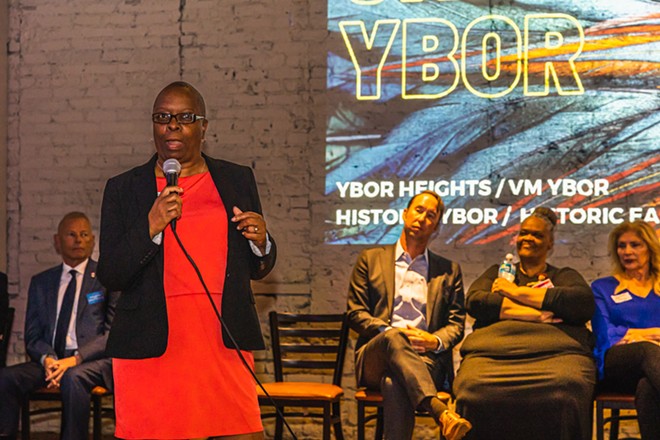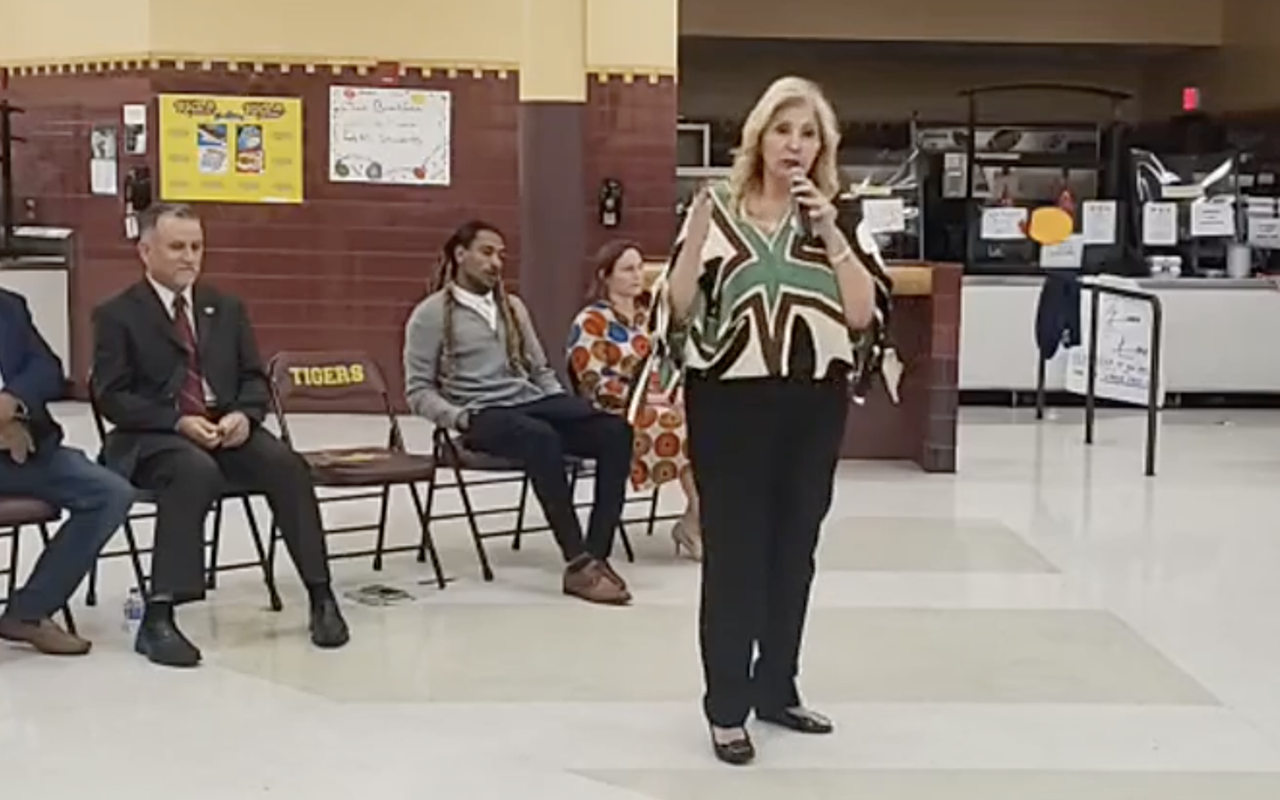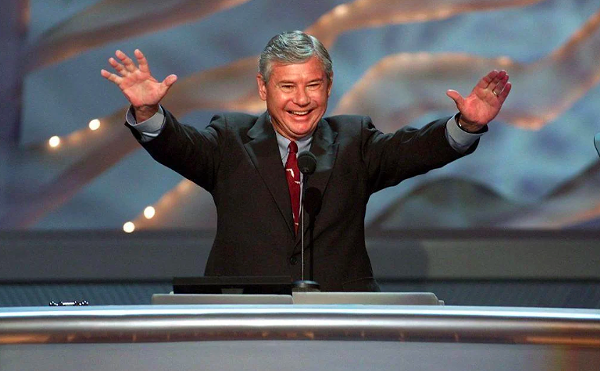
District 4 Councilman Bill Carlson easily won reelection against McDonald’s heir Blake Casper, and Gwen Henderson eeked out a 75-vote win over District 5 incumbent Orlando Gudes who’ll serve until new councilmembers are sworn-in over the summer.
On Friday, candidates for the runoff in four Tampa City Council races, will make their case to a room full of the city’s most engaged politicos. The runoff election is set for April 25, with early voting happening April 17-23. If you're not already registered to vote, you can register for the runoff before the deadline on March 27.
Tickets to Tampa Tiger Bay: Tampa City Council Part 3, Runoff Races on Friday, March 17 at the Cuban Club in Ybor City are still available and start at $35 for non-members. Only members are allowed to participate in the Q&A portion of the forum.
In a press release sent last week, Tampa Tiger Bay said all candidates were invited and that all except for Charlie Miranda—who faces Hoyt Prindle in the District 6 runoff—have confirmed their attendance.
District 1’s portion won’t feature incumbent Joe Citro who didn’t make the runoff despite earning an endorsement from Mayor Jane Castor. Instead, attendees will hear from Citro’s longtime political opponent, retired air traffic controller Alan Clendenin, and Dr. Sonja P. Brookins who most recently served as Hillsborough's Soil & Water Conservation in District 4.
Brookins is also one of two Black women to make the runoff for a citywide seat, an apparent first in Tampa politics.
Brookins’ fellow history-maker is Robin Lockett, a former President of the Hillsborough County Democratic Black Caucus, Florida Rising activist, and force in during public comment on a myriad of issues in Tampa City Hall.
Lockett faces Guido Maniscalco in the District 2 race where she finished with 24.8% of the vote, behind Maniscalco’s 47% but ahead of former Tampa City Councilman Mike Suarez.
District 3’s race is between incumbent Lynn Hurtak and former State Sen. Janet Cruz who saw her 13-year-run in Tallahassee abruptly come to an end when she lost to newcomer Jay Collins.
As noted almost ad nauseam in coverage leading up to last week’s election, the 2023 vote, in many ways, is a statement on Tampa Mayor Jane Castor whose first-term was marked by the city’s rapid growth but also Department of Justice investigations, a controversial police chief who resigned in dishonor, issues over transparency, and a controversial plan for Tampa’s wastewater.
PACs connected to Castor—who ran virtually unopposed in her race—spent money sending negative mailers on proposed changes to the city’s charter, but the passage of all but one of them is largely seen as a signal of the public’s desire to keep mayoral power in check. The fact that “32.49 percent of voters did not vote for Jane Castor,” is also a sign that the mayor may not be as popular as some have suggested.

















